
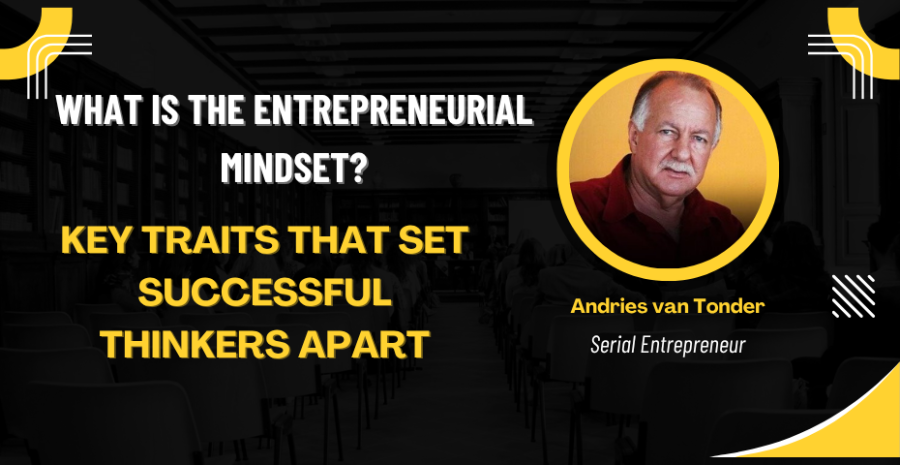
The entrepreneurial mindset isn't just reserved for those who build startups or launch disruptive products. It's a dynamic way of thinking that transforms how individuals approach problems, opportunities, and the future.
It embodies a proactive, curious, and resilient nature—one that sees failure as feedback, setbacks as setups, and limitations as invitations to innovate. Entrepreneurs think differently.
They don’t just react to circumstances; they create new ones. Whether you're leading a business, climbing the corporate ladder, working in education, or exploring a creative field, cultivating this mindset can elevate your impact and unlock untapped potential.
At its core, the entrepreneurial mindset is all about possibility thinking. It thrives on resourcefulness over resources, clarity over confusion, and action over hesitation. It’s what separates dreamers from doers. Successful thinkers don’t wait for perfect conditions—they build, test, adapt, and repeat.
They are driven by purpose, anchored by vision, and willing to face uncertainty with courage. Their secret weapon? Mental agility and unwavering belief in their ability to influence outcomes.
This mindset isn’t something you’re born with—it’s a cultivated set of habits, beliefs, and disciplines. And the best part? Anyone can adopt it. Whether you're launching a side hustle, leading a team, or simply looking to sharpen your life strategy, the traits of an entrepreneurial thinker can help you push past limits and expand what you believe is possible.
Every opportunity, every failure, and every challenge becomes a chance to grow, pivot, and evolve.
In today’s ever-changing world, developing an entrepreneurial mindset is no longer optional—it’s essential.The digital age demands adaptability, the global economy favors innovation, and the fast-paced culture rewards those who can think on their feet.
Entrepreneurship is not just about business ownership; it's about being the architect of your own life. It's about ownership of thought, emotional intelligence, and the courage to defy the norm when necessary. It's the ability to thrive in chaos while creating clarity.
As we explore the key traits that define the entrepreneurial mindset, you’ll discover how these principles can be integrated into your personal and professional life to ignite a whole new level of performance and fulfillment.
Whether you're just beginning your journey or reinventing your path, embracing this mindset could be your most powerful move yet. Let’s dive in.
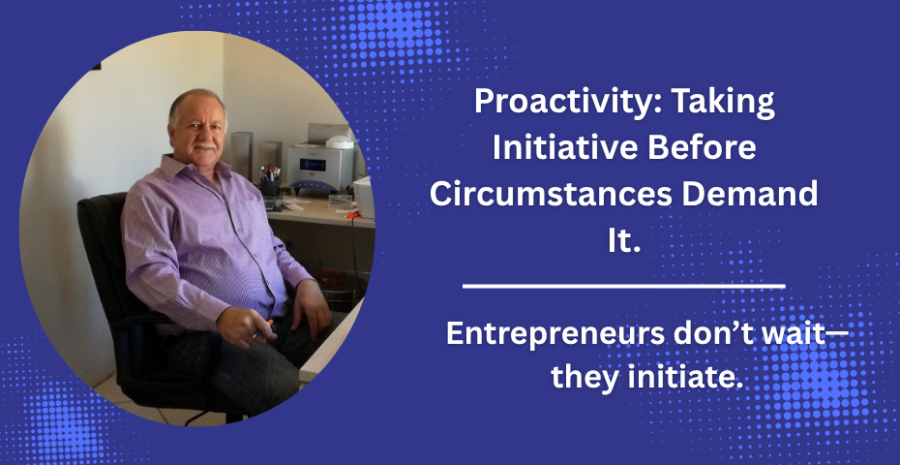
Entrepreneurs don’t wait—they initiate. Proactivity is a foundational trait of the entrepreneurial mindset because it empowers individuals to act rather than react.
Where most people see a problem and wait for direction, entrepreneurial thinkers see an opportunity to lead, to create, or to solve. Proactive people are anticipators.
They scan the horizon for future challenges and begin crafting solutions before the world even knows there's an issue. They’re not sitting around waiting for permission. They take ownership of outcomes and trust their ability to make progress—even when the path isn't clearly defined.
This proactive stance isn’t about being impulsive; it’s about intentional movement. Entrepreneurs understand that stagnation is the enemy of innovation.
They live by the rule that action breeds clarity and progress, even if the first step is imperfect. This attitude fuels agility, enabling them to course-correct quickly without being paralyzed by overthinking. They know the worst decision is no decision. That’s why they choose to move forward and learn along the way.
Being proactive also requires internal discipline. It means managing your time and energy in alignment with your goals. It means prioritizing long-term vision over short-term comfort.
Entrepreneurial minds train themselves to anticipate market shifts, emotional responses, and resource gaps. In doing so, they remain prepared—not panicked. Their forward-thinking mindset gives them a strategic edge and positions them as leaders, even in environments of uncertainty.
The proactive thinker isn't lucky—they're ready.
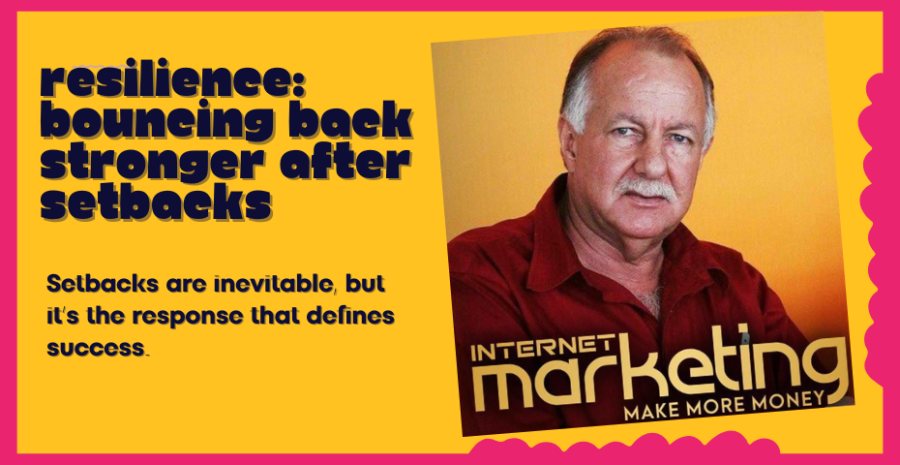
Setbacks are inevitable, but it’s the response that defines success. Resilience is the backbone of the entrepreneurial mindset.
It’s the ability to adapt, recover, and grow through adversity. When others quit, entrepreneurs persevere. When plans fall apart, they rebuild with stronger foundations. They embrace hardship not as a signal to stop, but as a test of how badly they want it.
For them, failure isn’t final—it’s feedback. It’s a chance to gain wisdom, refine their approach, and reemerge wiser and more prepared.
What makes entrepreneurial resilience unique is its optimism. Successful thinkers reframe problems as puzzles and challenges as growth opportunities. Instead of asking, “Why me?” they ask, “What can I learn?” or “What’s the next move?”
This mindset doesn’t deny pain or struggle—it transforms it into fuel. Entrepreneurs see each obstacle as part of the process, not the end of the journey. They know that the path to success is nonlinear, filled with twists, detours, and dead ends—and they embrace it.
Moreover, resilience is about emotional agility. Entrepreneurs build mental strength by cultivating habits like mindfulness, reflection, and positive self-talk. They recognize when to pause, recalibrate, and return to the mission with renewed clarity.
They lean on mentors, absorb criticism constructively, and maintain a long-term vision despite short-term turbulence. Every time they get knocked down, they rise—not just to where they were but often beyond.
That’s the power of resilient belief and relentless drive.
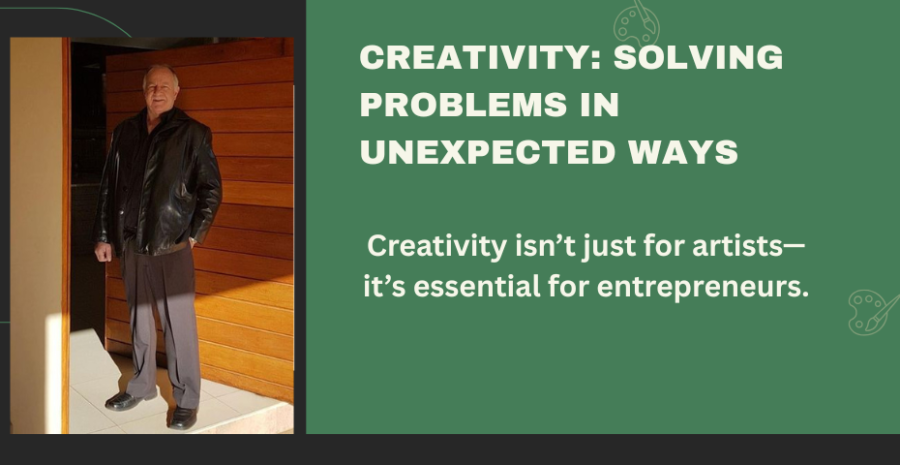
Creativity isn’t just for artists—it’s essential for entrepreneurs. It’s the lifeblood of innovation, and it allows individuals to see what others miss.
Creative entrepreneurs look at problems from multiple angles. They challenge assumptions, ask unconventional questions, and resist settling for the obvious. Their thinking is fluid and flexible, enabling them to connect dots between unrelated ideas and generate original solutions.
Creativity fuels their ability to disrupt industries, reshape experiences, and reimagine possibilities.
But creative thinking doesn’t come from talent alone—it’s cultivated through curiosity and experimentation.
Entrepreneurs actively seek out new perspectives, travel unfamiliar paths, and expose themselves to different disciplines and people.
They consume books, observe trends, and engage in brainstorming not as an occasional exercise, but as a daily discipline. Creativity is not just about imagination—it’s about creating value from that imagination. It turns ideas into impact.
Additionally, creative entrepreneurs are unafraid of risk. They know that trying something new inherently involves uncertainty. But to them, the potential reward of innovation outweighs the comfort of predictability. Their mindset welcomes trial and error because they understand that even failed ideas spark new insights.
The entrepreneurial mind thrives in ambiguity and finds clarity through creation. Whether it’s designing a new product or pivoting a business model, creativity is the compass that keeps them navigating forward.
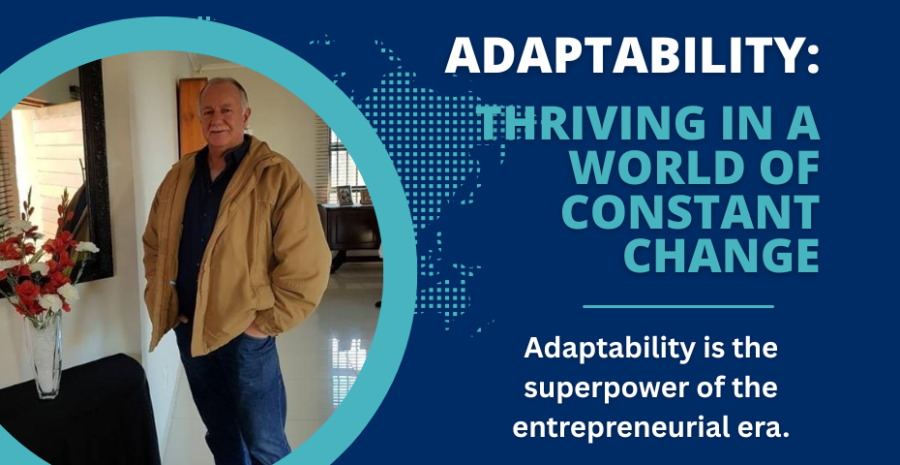
Adaptability is the superpower of the entrepreneurial era. With rapid technological shifts, evolving markets, and global disruption, those who adapt survive—those who thrive are adaptable by design.
Entrepreneurs embrace change as the only constant. They are not stuck in tradition or paralyzed by the past. They pivot when necessary, evolve when required, and reinvent when the old model no longer serves the mission.
Adaptability is what allows them to stay relevant and lead through transformation.
Adaptable thinkers welcome feedback. They don’t tie their identity to a single idea or approach. Instead, they see flexibility as strength.
This mindset enables them to detach from ego, recognize when something isn’t working, and switch gears without emotional friction.
They let go of the need to be right and focus instead on getting it right. That humility is a core component of entrepreneurial adaptability and fuels continuous improvement.
In practice, this means constantly learning and unlearning. Entrepreneurs upgrade their skills, explore new technologies, and stay ahead of the curve. They observe trends, test assumptions, and validate new directions with speed.
When others resist change, entrepreneurs embrace it—because they know that comfort is the enemy of growth.
Their adaptability isn’t just about reacting quickly; it’s about evolving strategically to meet the moment. They shape change before it shapes them.

At the heart of every entrepreneurial journey lies a compelling vision. This vision isn’t just a distant dream—it’s a vivid, driving force that shapes every decision and fuels daily action.
Entrepreneurs possess an extraordinary ability to imagine a better future and then work backward to build it. They see possibilities where others see problems.
While many focus on the limitations of today, entrepreneurial minds focus on what could be tomorrow. Their vision gives them direction, resilience, and clarity in moments of doubt or distraction.
A powerful vision helps entrepreneurs stay anchored through uncertainty. It acts as a compass, reminding them of their ‘why’ and giving meaning to their grind. This clarity of purpose enables them to prioritize tasks that align with their long-term goals and ignore the noise that derails others.
They’re not chasing every shiny object—they’re pursuing something deeper, something transformational. This internal conviction inspires others and attracts support, talent, and momentum.
But vision isn’t static. Entrepreneurial thinkers continuously refine it based on new insights, evolving passions, or changes in the market. They are open to feedback but firm in their mission.
They recognize that vision isn’t just about business success—it’s about legacy, contribution, and creating real value in people’s lives. When an entrepreneur speaks of their vision, it’s not a pitch—it’s a purpose. And that’s what makes it powerful.
That’s what inspires movements, not just companies.
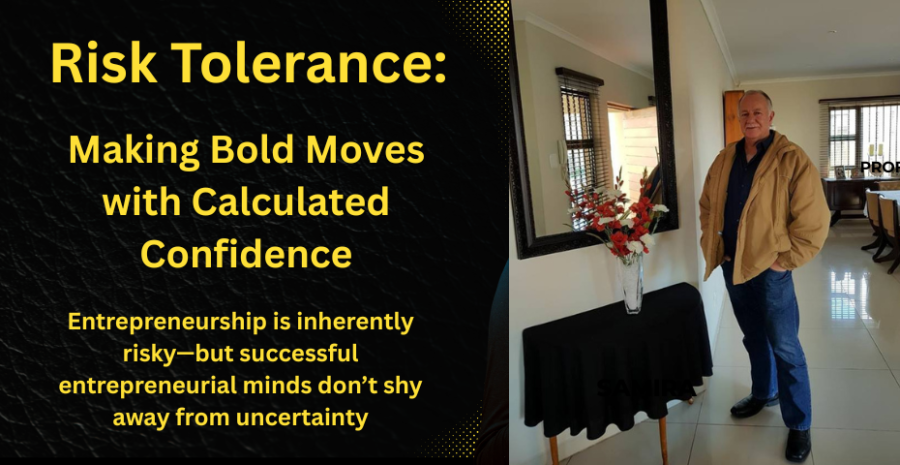
Entrepreneurship is inherently risky—but successful entrepreneurial minds don’t shy away from uncertainty. Instead, they embrace it with confidence and strategy.
Risk tolerance isn’t recklessness; it’s the ability to make informed decisions in the face of uncertainty. Entrepreneurs understand that playing it safe often leads to mediocrity. They’re willing to take bold steps because they know that innovation, growth, and success rarely come without some level of risk.
What sets them apart is their approach to risk. They don’t gamble blindly. They assess the upside, understand the downside, and plan accordingly.
They conduct research, run experiments, and gather insights before making big moves. But when the data is in, they act decisively. They know that too much hesitation can be more dangerous than taking a calculated leap. They use risk as a tool—not a threat.
Every great business, product, or invention exists because someone chose courage over comfort.
More importantly, entrepreneurs build their tolerance to risk by developing a healthy relationship with failure. They expect it, prepare for it, and use it to improve. Instead of fearing what might go wrong, they focus on what they’ll gain by trying.
They know that with each risk taken, even if it fails, they gain insights and strength. The entrepreneurial mind sees risk not as a wall but as a doorway to the next level of growth—and they’re always ready to walk through.
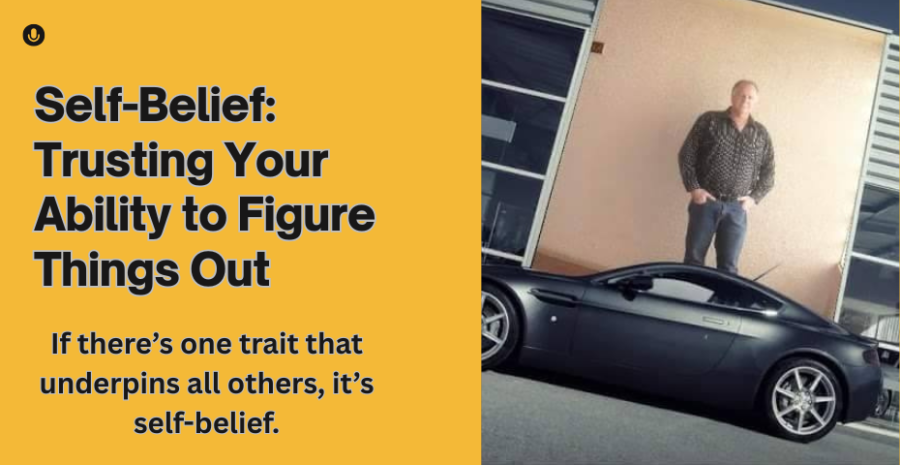
If there’s one trait that underpins all others, it’s self-belief. Entrepreneurs believe deeply in their ability to find solutions, make things happen, and overcome challenges—even when the odds are stacked against them.
This belief isn’t about arrogance; it’s about trust. Trust in their instincts, trust in their resourcefulness, and trust in their resilience. They know they don’t have all the answers, but they believe they can figure it out—and that confidence becomes a self-fulfilling prophecy.
Self-belief gives entrepreneurs the fuel to persist when others give up. It silences the inner critic and amplifies the inner coach. It helps them take ownership of their future, rather than leaving it in someone else’s hands.
This confidence doesn’t come from a perfect record; it comes from showing up, failing, learning, and trying again. Each experience builds another layer of trust in themselves and their process. And with each layer, their capacity expands.
Moreover, self-belief is contagious. It inspires teams, attracts partners, and builds customer trust. When people see an entrepreneur who believes in their mission, they’re more likely to join the journey. That energy is magnetic. But entrepreneurs know that belief must be backed by action.
They continuously invest in personal growth, sharpen their skills, and take aligned risks to honor their self-belief. Because in their world, belief isn’t just mindset—it’s momentum.
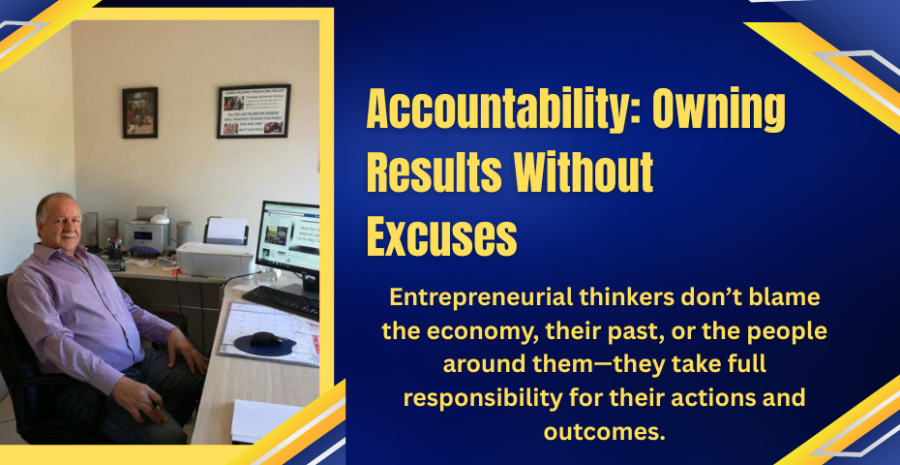
Entrepreneurial thinkers don’t blame the economy, their past, or the people around them—they take full responsibility for their actions and outcomes.
Accountability is the secret strength that ensures progress. It’s the discipline of owning your decisions, tracking your growth, and learning from your mistakes. Entrepreneurs know that results don’t come from intention—they come from consistent, accountable execution.
And when things go wrong, they don’t deflect—they reflect.
This radical ownership fuels trust and credibility. Entrepreneurs who take responsibility for everything in their domain—finances, communication, customer experience, leadership—build solid reputations.
They create cultures of integrity and empower their teams to do the same. They model what it means to be responsible for outcomes, not just activity.
That standard drives excellence and minimizes excuses. In a world full of finger-pointing, the entrepreneurial mind points inward and asks, “What can I do better?”
Accountability also sharpens self-awareness. Entrepreneurs use data, feedback, and self-reflection to measure progress. They don’t wait for someone to hold them accountable—they set goals, review results, and course-correct when needed.
They understand that consistent, small improvements compound over time—and those compounding gains come from disciplined follow-through. To them, accountability isn’t pressure—it’s power.
It’s the foundation that turns big ideas into real impact.
The entrepreneurial mindset isn’t reserved for the select few who start companies or pitch venture capitalists. It’s a way of thinking that empowers anyone—at any stage in life—to take control of their direction, define their purpose, and create their own version of success.
This mindset blends bold vision with grounded strategy. It balances action with reflection, resilience with humility, and passion with discipline. It’s the blueprint not just for launching ventures but for leading a fulfilling, empowered life.
In a world full of unpredictability, the entrepreneurial mindset is a stabilizing force. It teaches us how to pivot with purpose, create value through service, and navigate challenges as stepping stones.
It reminds us that growth is born in discomfort, and real progress begins when we stop waiting for perfect conditions and start working with what we have. The entrepreneurial thinker knows that success isn’t found—it’s created, one intentional move at a time.
Whether you’re an aspiring business owner, a career professional, or someone simply seeking greater personal agency, adopting these traits will elevate your potential. You’ll start to see opportunities others overlook, build confidence from experience, and live with a deeper sense of purpose and direction.
You don’t need a business to be an entrepreneur—you need a mindset rooted in curiosity, courage, and commitment.
So take that first step. Start asking different questions. Embrace proactive thinking. Own your choices. Trust yourself. And most importantly, never stop building the future you know is possible. Because with the right mindset, you don’t just survive—you lead, you inspire, and you thrive.
The entrepreneurial path isn’t just about what you do—it’s about who you become.
Let your startup be the exception, not the statistic.
....................................................................................................................................................................................................
About: Andries vanTonder
Over 46 years selfemployed
He is a Serial Entrepreneur, an Enthusiastic supporter of Blockchain Technology and a Cryptocurrency Investor
Find me: Markethive Profile Page | My Twitter Account | My Instagram Acount | and my Facebook Profile.
